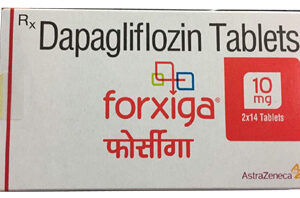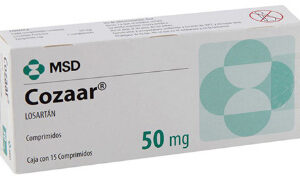Glycomet is a medication that belongs to the class of antidiabetic drugs known as biguanides. It contains the active ingredient metformin hydrochloride, which helps to lower blood sugar levels in people with type 2 diabetes. Glycomet works by reducing the amount of glucose produced by the liver and increasing the sensitivity of muscle cells to insulin. It is commonly prescribed alongside a balanced diet and regular exercise to effectively manage diabetes.
As a prescription medication, Glycomet is available in the form of tablets and should only be taken under the guidance of a healthcare professional. It is important to follow the prescribed dosage and any specific instructions provided by your doctor to ensure the safe and effective use of this medication. Glycomet should not be used to treat type 1 diabetes or diabetic ketoacidosis, as it is not effective for these conditions. It is also not recommended for use in children without medical supervision.
What to Avoid When Taking Glycomet
Glycomet should be avoided or used with caution in certain situations due to its potential to cause adverse effects. It is essential to inform your healthcare provider about any existing medical conditions, allergies, or medications you are currently taking before starting Glycomet. This information will help your doctor determine whether Glycomet is suitable for you and adjust the dosage if necessary.
In general, it is important to avoid Glycomet if you have any of the following conditions:
- Severe kidney disease
- Liver disease
- Heart failure or a history of heart attack
- Respiratory issues or chronic obstructive pulmonary disease (COPD)
- Excessive alcohol consumption
- Allergy to metformin hydrochloride or any other components of Glycomet
Managing Side Effects
Like any medication, Glycomet may cause side effects, although not everyone experiences them. Most side effects are mild and temporary, but some may require medical attention. It is essential to familiarize yourself with the possible side effects of Glycomet and consult your doctor if you have any concerns or if the side effects persist or worsen.
Common side effects of Glycomet include:
- Gastrointestinal disturbances, such as nausea, vomiting, diarrhea, and abdominal discomfort
- Loss of appetite
- Taste disturbances, such as a metallic taste in the mouth
- Headache
- Dizziness or lightheadedness
Less common but more severe side effects that may require immediate medical attention include:
- Symptoms of lactic acidosis, such as muscle pain, difficulty breathing, drowsiness, or abdominal pain
- Allergic reactions, such as rash, itching, swelling, or difficulty breathing
- Signs of low blood sugar levels, including sweating, shakiness, confusion, and rapid heartbeat
Administration
Glycomet tablets should be taken as directed by your doctor. The dosage prescribed may vary depending on several factors, including the severity of your diabetes, other medications you are taking, and your overall health condition. It is important to follow the recommended dosage and never exceed or skip a dose without consulting your doctor first.
If you miss a dose of Glycomet, take it as soon as you remember, unless it is close to the time for your next scheduled dose. In this case, skip the missed dose and continue with your regular dosing schedule. Do not double the dose to make up for a missed one.
Overdosing on Glycomet can lead to hypoglycemia (low blood sugar) or lactic acidosis. Symptoms of hypoglycemia include sweating, shakiness, confusion, and rapid heartbeat. If you suspect an overdose, seek immediate medical attention.
What to Watch Out For
When taking Glycomet, it is important to be aware of potential drug interactions that may affect its effectiveness or increase the risk of side effects. Inform your doctor or pharmacist about all the medications, supplements, and herbal products you are taking to avoid any harmful interactions.
Glycomet may interact with the following medications:
| Drug | Effect of Interaction |
|---|---|
| Certain diuretics (e.g., furosemide) | Increased risk of lactic acidosis |
| Cimetidine | Decreased excretion of glycomet, leading to higher blood levels |
| Alcohol | Increased risk of lactic acidosis |
| Medications that can cause hypoglycemia (e.g., insulin) | Potential for additive effects, increasing the risk of low blood sugar levels |
Your Questions Answered
-
Can Glycomet be used during pregnancy?
Glycomet is generally not recommended during pregnancy. However, your doctor may consider it essential in certain cases to maintain stable blood sugar levels. It is important to discuss the risks and benefits with your healthcare provider before using Glycomet during pregnancy. -
Can I drink alcohol while taking Glycomet?
It is generally advisable to avoid excessive alcohol consumption while taking Glycomet, as it may increase the risk of lactic acidosis. Moderate alcohol consumption is typically considered safe, but it is essential to consult your doctor for personalized advice. -
Does Glycomet cause weight gain?
Glycomet is not associated with weight gain. In fact, it may help with weight loss in some individuals by improving insulin sensitivity and reducing appetite. However, the effects can vary from person to person. -
Is it safe to drive while taking Glycomet?
Glycomet is generally not known to impair driving ability. However, some individuals may experience dizziness or lightheadedness as a side effect. If you experience such symptoms, it is advisable to avoid driving or operating heavy machinery until you know how the medication affects you. -
Can I take other medications for my existing health conditions while on Glycomet?
It is important to inform your doctor about all the medications you are taking, especially if you have other health conditions. Some medications may interact with Glycomet, affecting its effectiveness or increasing the risk of side effects. Your doctor will evaluate the potential interactions and adjust your treatment accordingly.






Reviews
There are no reviews yet.